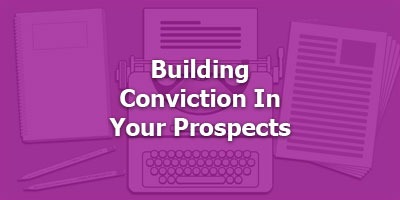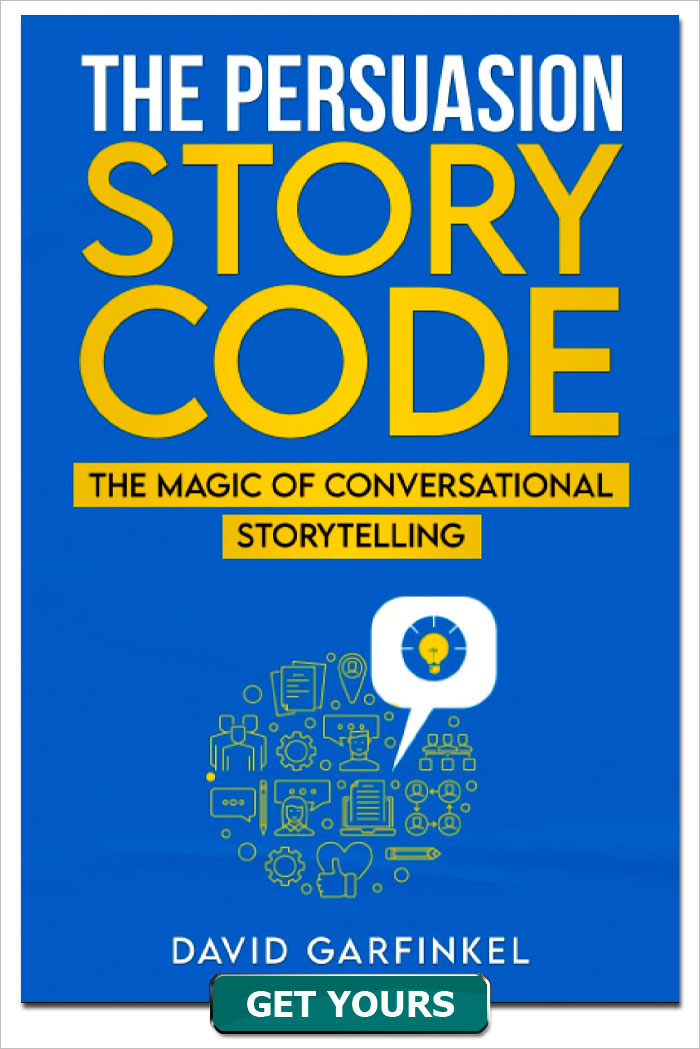Episode 028 - Building Conviction In Your Prospects
Published by: David Garfinkel on 10-29-2017
Tweet
I remember a few years ago I had had it up to here with all the bulky, complicated audio equipment cluttering up my house. I needed something simpler, faster, better. I called BH Photo Video in New York and got a salesman, Aaron, on the line who listened very carefully to me. At one point I said to him, "Listen, I am not a technical wizard. I don't want to spend 15 minutes adjusting knobs and faders just to be able to record something."
"Of course not," he said. "You want to stay in a state of flow."
He had me right there. I had never thought about that before, but he was absolutely right. That was why I hated all the complicated stuff – it pulled me out of my flow state. And if I wasn't in a flow state, I couldn't do a compelling recording.
Then Aaron very patiently and thoroughly recommended a device called an Apogee Duet. It cost about four times what I had planned to spend. But the more he talked, the bigger a believer I became.
I bought it, because I was in a state of total conviction. And years of experience has proven this was the right audio device for me. In fact, I'm using it right now, even as we speak.
Copywriters can create conviction in their sales letters and ads the same way my salesman created it in me. And conviction can make all the difference with a hesitating buyer. We'll talk about that today.
First, I'd like to mention this:
Copy is powerful. You're responsible for how you use what you hear on this podcast. Most of the time, common sense is all you need. But if you make extreme claims… and/or if you're writing copy for offers in highly regulated industries like health, finance, and business opportunity… you may want to get a legal review after you write and before you start using your copy. My larger clients do this all the time.
▾ What conviction is
• deep-seated belief that takes away all barriers to action
• In a movie, you can see this in a major way in how the hero, eventually, gets to a point where they will STOP AT NOTHING to achieve their goal
• In copy, it's seldom as dramatic as it is in a Hollywood movie. But it's just as important. Because conviction is what opens the door to a sale that sticks.
▾ Why it's important
• When you have created conviction in your prospect, they are as ready to buy as they'll ever be.
▾ What happens when you create it
• You put yourself, as a copywriter, in the perfect position to close the sale
▾ What happens when you don't
• You might get the sale, but you risk getting buyer's remorse, which means: more refunds, and more customers from hell
▾ Where most people screw up
• They do a "paint by numbers" approach to creating conviction rather than really working at it to make it powerful: research, selection, feeling, thinking
• They don't create an authentic, believable conversation in their copy
between themselves and the prospect
▾ Where you need to start: yourself
▾ If you don't believe in the product or service you're selling — to the point where you would buy it yourself, you've got three choices:
• Convince yourself so you really do believe in it that much
• Fake it. Pretend that you believe in it that much and write from that state of mind. (Not recommended, but we don't always end up writing the copy we would most like to write.)
• Walk away. If you can't "mock up" a feeling of conviction in yourself, you're not doing yourself or your client (or your business) any favors. You shouldn't be writing the piece.
• … but, assuming you can develop a solid feeling of conviction in yourself, here are some powerful techniques:
▾ Make it personal… relevant… meaningful
• personal
- Talk about how the product or service fits into the prospect's life, and what difference it will make. Aaron did that, and it made all the difference for me. This means you really have to understand the prospects and their lives, including their frustrations and why
they have those frustrations.
• relevant
- don't give generic reasons and examples. Be specific. So it's believable. Remember again Aaron.
• meaningful
- Again, you need to really understand your prospect. Only then will you know what's meaningful to them. Aaron understands creative people and performers, and he knows getting in a state of flow and staying there is high on the priority list!
• Use metaphors, analogies, comparisons
Especially when you have something that's new or unfamiliar to your prospect. Compare it to something familiar. "It's the Swiss Army Knife of food processors." Someone who's into cooking will get that right away.
• Write to a PERSON from YOURSELF
Imagine someone you know, like, and care about. Write in a way that would create conviction in them.
• Specifics rather than generalities
Kim Phelan: Specifics spark emotions; (usually) generalities don't.
• "Important trivialities"
Find out the little details most people would never care about, but your prospect cares about a lot. Mentioning those can strengthen conviction.
Keywords: conviction flow state market research









